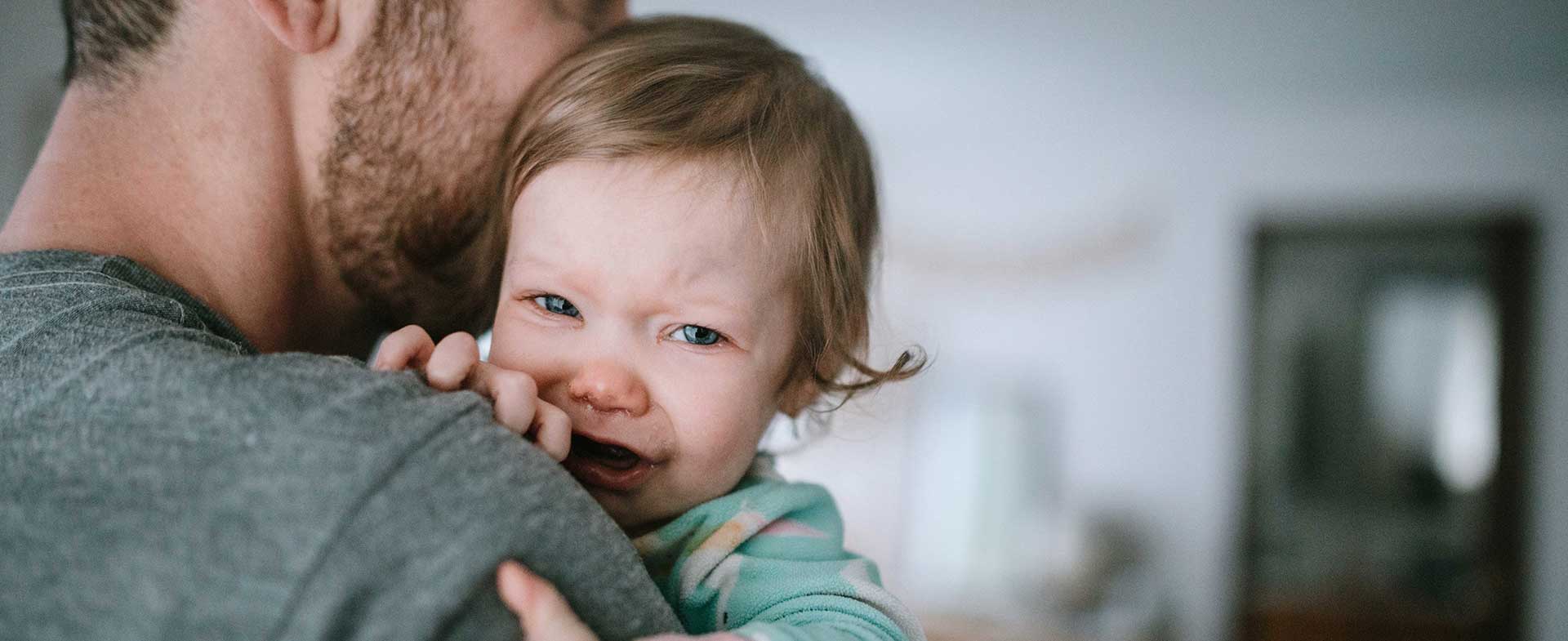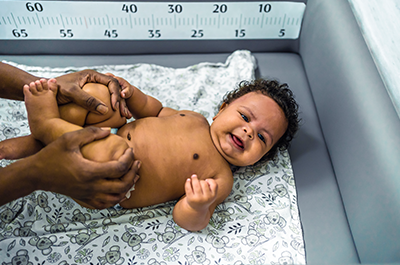Few things can make a parent feel more helpless than a sick kid. You want to do everything you can to make them feel better – especially when your child is just a baby or toddler and can’t communicate what they’re feeling or understand why they feel so sick.
By understanding illnesses like Respiratory Syncytial Virus (RSV), which can affect young children differently than older kids and adults, you can be better prepared for what to expect.
What is RSV?
“Respiratory Syncytial Virus is a common virus that can be one of the many causes of the common cold in healthy, older children and adults,” says Marisa Elias, M.D., a pediatrician for Henry Ford Health. “RSV lasts about one week but the illness is at its worst on days 3 to 5.”
Like other respiratory viruses, RSV is spread through contact and droplet. This means it is easy to pick up. Someone sneezing near you or touching an infected surface or item can put you in contact with the virus.
Symptoms of RSV can include:
- Runny nose
- Fever
- Congestion
- Difficulty breathing
- Sneezing
- Coughing
- Dehydration
How does RSV affect kids?
Right now, cases of RV are up in the state of Michigan - with hospitals full of kids being treated for it.
RSV is more dangerous in infants and young children because they have smaller airways. “What happens with RSV is that irritation creates a lot of mucus,” says Dr. Elias. “Since infants and young children are nose breathers, it is difficult for them to breathe since they cannot blow their nose.”
This mucus can block airways – causing coughing and wheezing. In serious cases, RSV can develop into a lung infection called bronchiolitis. If your child gets this lung infection multiple times, they can develop asthma when they are older.
“For those who have recurrent RSV bronchiolitis and a family history of asthma, sometimes a prescription to relieve coughing and congestion can be administered using a nebulizer,” says Dr. Elias. “There is a prescription medication available in the first year of life for special cases such as premature infants, those with chronic lung disease or congenital heart disease.”

How can you prevent RSV?
Being in contact with others who have RSV puts you and your child at a greater risk of getting the virus. Cases of this virus often spread quickly in daycare or school settings because children are in close contact, and during colder months of the year. The best thing you can do is to encourage frequent hand washing and keep toys and surfaces properly sanitized.
What can you do if your child has RSV?
If your child does come down with a cold that may be RSV, use these tips to get them on the fast track to recovery and prevent complications:
- Stay hydrated. Infants and small children may become dehydrated because they cannot breathe properly during feeding. Monitor your child’s fluid intake and how frequently their diaper is wet or they’re using the bathroom to make sure they are properly hydrated.
- Keep the nose clear with suction and saline. Make sure to suction your baby or toddler’s nose frequently to help them breathe easier. For older children, encourage them to blow their nose often.
- Prevent the spread of germs. Encourage your child to cough into their sleeve to keep others from getting sick. Make sure they are washing their hands and that the house gets properly cleaned and disinfected any time someone in your house is sick.
Related Topic: 20 Things That Can Get You Sick, Quick
Be alert if your child has RSV – especially if they are less than 2 years old or premature. Reach out to your child’s pediatrician if your child is having a hard time breathing, is drinking or urinating less than normal, is unusually tired, or has a fever of over 100.4 F for more than five days. They may need to be admitted to the hospital to get supplemental oxygen to help their breathing or an IV if they need fluids because they are unable to feed properly.
Need care fast? Find an ER or check out the same-day or walk-in care options available at henryford.com or call 1-800-436-7936.
Dr. Marisa Elias is a pediatrician and sees patients at Henry Ford Medical Centers in Royal Oak and Sterling Heights.



